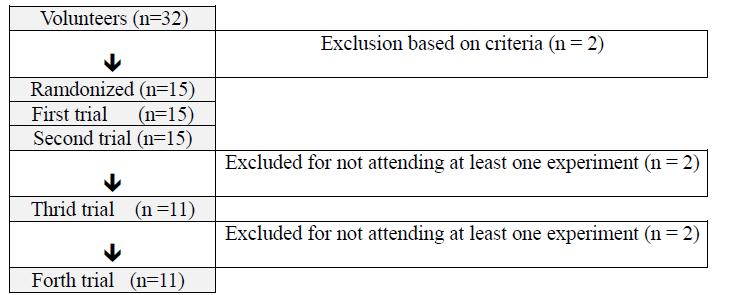ABSTRACT
The present study aimed to evaluate the acute behavior of the brachial artery resistance index (BARI) and popliteal artery resistance index (PARI) in response to low intensity strength exercises involving small (SMG) and large muscle groups (LMG) performed with and without blood flow restriction. Eleven men (age 23 ± 3.29 years) underwent a four-arm, randomized, cross-over experiment: Small muscle group exercise (SMG), small muscle groups with blood flow restriction (SMG+BFR), large muscle groups (LMG) and large muscle groups with blood flow restriction (LMG+BFR). The behavior of BARI and PARI was evaluated at rest, immediately after exercise, and at 15 and 30 minutes during recovery. Data analysis showed a significant reduction of the BARI from rest to post-exercise only in the protocols involving SMG, regardless of the BFR (p <0.05). Protocols involving LMG, with or without BFR, did not affect PARI (p> 0.05), but were efficient to promote significant increases in BARI (p <0.05) immediately after exercise. Our findings indicate that the exercises involving SMG, regardless of BFR, are efficient to promote local vasodilatation (brachial artery), but without systemic effects. None of the analyzed protocols affected the PARI behavior.
Keywords:
Vascular Occlusion; Exercise Therapy; Vasodilatation

 Source: Authors
Source: Authors
 Source: Authors
Source: Authors
 Source: Authors
Source: Authors